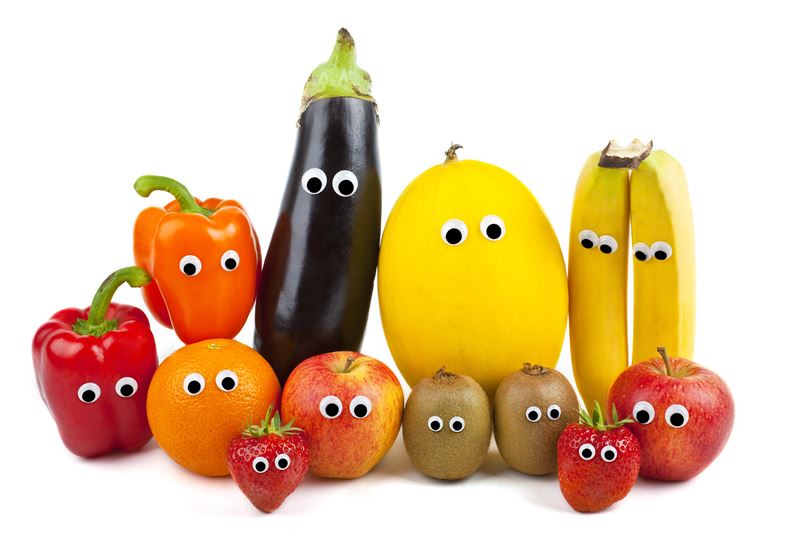You won’t hear this in mainstream media. They seem to downplay the importance of eating organic, even though more and more people switch it rather than persisting with “conventional” food often laced with synthetic pesticides.
Many people are familiar with the Dirty Dozen and the Clean Fifteen from the Environmental Working Group. It’s a list that highlights the most important fruits and vegetables to buy organic in order to maximise your dollars (of course it’s always wise to buy all organic if you can afford it).
But despite the growing number of readers of such lists, we must realise just how contaminated many of the most popular fruits and vegetables really are.
The amount of pesticides on these 5 most polluted types of produce is quite staggering, especially when taking into consideration that so many “healthy eating programs” still recommend them or pass them out at health events and omit any mention of the high levels of toxic pesticide residues they contain.
Four fruits and vegetables actually have actually been found to have more than 45 different pesticide residues over large samples taken by the USDA; so keep this in mind next time you reach for another “healthy” snack for your kids in the produce aisle.
The Top Five Pesticide Soaked Fruits and Vegetables
With such a crazy level of pesticides on each of these “conventional” produce items, it just makes sense to drop them off your list entirely (even though most people buy them non-organic without second thought).
1. Strawberries
According to the EWG’s research, topping the list for the second time are strawberries. They may seem healthy at first glance but can actually be loaded with synthetic, toxic pesticides. As an ex-strawberry farmer, I can attest to this. Strawberries have a thin skin, meaning chemicals enter them easily. When an infestation of say, Heliothis arrives in your patch, you have about 3 days to save your strawberries so it’s a choice of throwing away months of hard labour.. or hitting the sprayer again. And because strawberries ripen in less than 3 days, they have to be sold in that time.. even though the pesticides used have at least 14 days with holding period!
Pesticides that have negative effects on our brain and nervous system have been found in terrible quantities on strawberries, with 45 total pesticide residues found by the PDP in 2009. The most contaminated single sample in 2017 had 20 different pesticide residues on it, the EWG reported.
Organic strawberries are especially pricier but well worth the investment; buy them in season and freeze to save big money.
2. Spinach
According to the EWG, the samples of spinach tested contained a bigger pesticide load by weight than any other crop tested, landing it number two on the list for 2017. In total, three-quarters of all spinach samples tested had residues of a particular type of potentially neurotoxic pesticide banned in Europe for use on food crops.
Its lack of an outer skin means that pesticides soak directly into the crop. Luckily for us, organic spinach is relatively cheap. While non-organic spinach is even cheaper, I just will not gamble on my health with a crop as heavily soaked with pesticides as this one.
3. Nectarines
Similar to peaches with their soft, round shape and orange color, nectarines soak up pesticides like a sponge, making it important to always buy them organic or at the very least to limit consumption.
According to a 2012 EWG report, nectarines previously had the most overall weight of pesticides of any fruit or vegetable, meaning that you’re probably consuming these dangerous carcinogens in every bite and taxing the health of your liver.
4. Apples
Apples are one of the highest pesticide residue fruits out there. Will you think twice about that next apple orchard trip?
Perhaps the most notable inclusion on this list is the apple, considering its reputation as a health food, and the lack of organic apple orchards for that matter. The vast majority of apple orchards remain “conventional,” and yet American apples were recently banned in Europe by regulators.
More than 47 pesticide residues were identified in ‘conventional’ apples by the USDA’s pesticide data program in 2010 and the crop is still heavily sprayed today. Apple juice, anyone?
5. Peaches
The soft furry skin of peaches combined with the amount of chemicals they’re treated with may spell serious trouble for your health over the long term.
A 2008 study by the PDP found 62 different pesticide residues on conventional peaches; several are considered as neurotoxins and/or known carcinogens. While you can wash some of the residue off, much of it remains in the soft flesh and skin of the peach.
Pass it on.
In my opinion, any pesticide I consume contributes directly to the inevitability of ultimate cancer. I know that’s a harsh conclusion, but as my relatives die around me – relatives who never understood the whole organic debate – I’m hanging on to my organic lifestyle.

